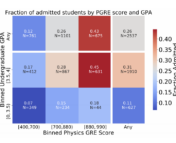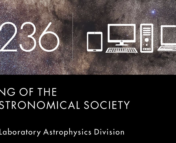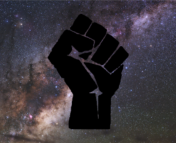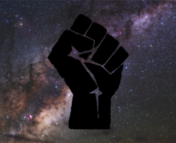Disclaimer: I am an active member of Dark Skies, Bright Kids!
Imagine a Scientist…
Before we get into today’s beyond post, I’d like to ask that you take a second and imagine a scientist. What do they look like? What are they wearing? What are they doing? What makes them a scientist?
Everyone who answers those questions will answer them differently, but the sad reality is that the majority of people imagine the same thing when asked to picture a scientist. White men in labcoats. And unfortunately, the demographics of astronomers in the United States reflects this stereotype. Today, scientists are working to remove these stereotypes (check out the Astrobites Diversity, Equity, and Inclusion series).
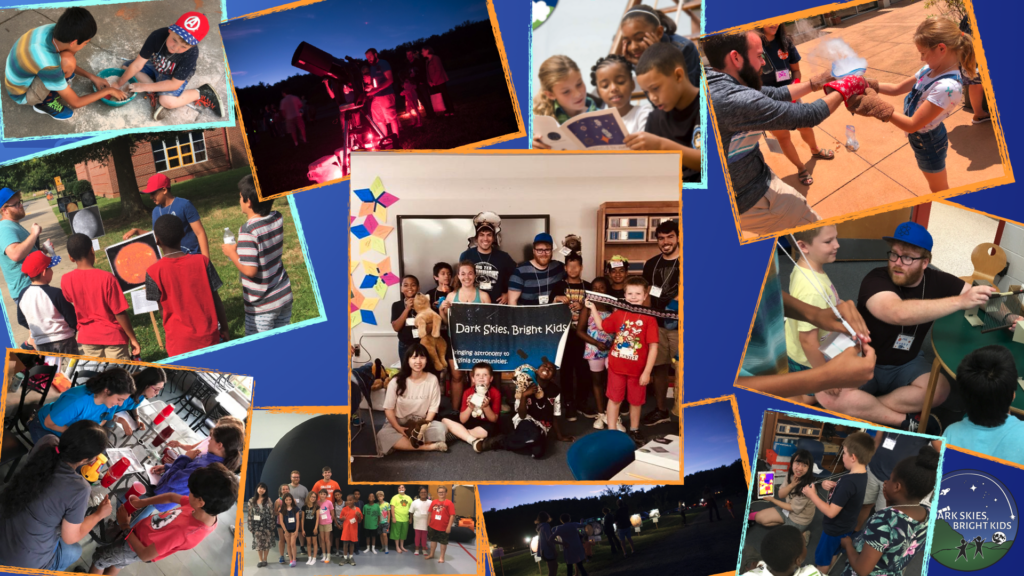
There are many ways for scientists to be more inclusive, but one graduate-student lead organization aims to aid in diversity, equity, and inclusion by working directly with children to remove these stereotypes. Dark Skies, Bright Kids! (DSBK) is a non-profit volunteer organization lead by the University of Virginia astronomy graduate students. Our mission statement: “Enhance science education and literacy in Virginia elementary schools, primarily in underserved areas.” During a typical year, DSBK hosts weekly after school clubs, summer clubs, and one-off events such as an annual Star Party. Each club covers a different science topic (e.g. the Solar System, astrobiology, galaxies and stars). Each club is designed to foster a natural curiosity in children using hands on activities that introduce astronomy and the scientific process (check out some of our lesson plans and our free book, “Snapshots of the Universe,” written in English and Spanish).
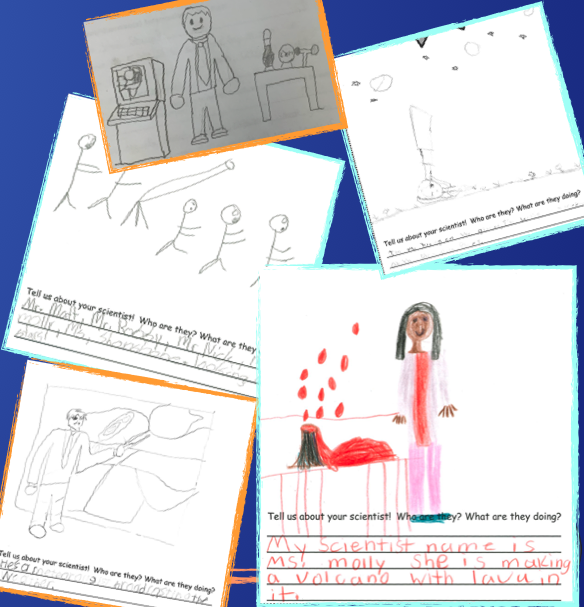
How do we know if DSBK is changing their idea of who can be a scientist? We ask the children to do the very same thing I asked you to do. Imagine a scientist. We ask children to “draw a scientist” before and after clubs, and our assessments team analyzes our success in removing stereotypes in science. In the last year, DSBK found that our hands on activities have a positive influence on children’s perspective of science.
But, how does a hands on volunteer organization reach children during a global pandemic? By making astronomy “Do it Yourself” (DIY).
Making Astronomy DIY
DSBK has adapted to the virtual world by holding a virtual week long summer camp. But, there were several issues we had to address. DSKB’s target demographic are underserved communities, where typically both parents work and are unable to help the children all day, there may be a lack of technology or internet connection, and the family may not have the funds to purchase materials necessary for the camp.
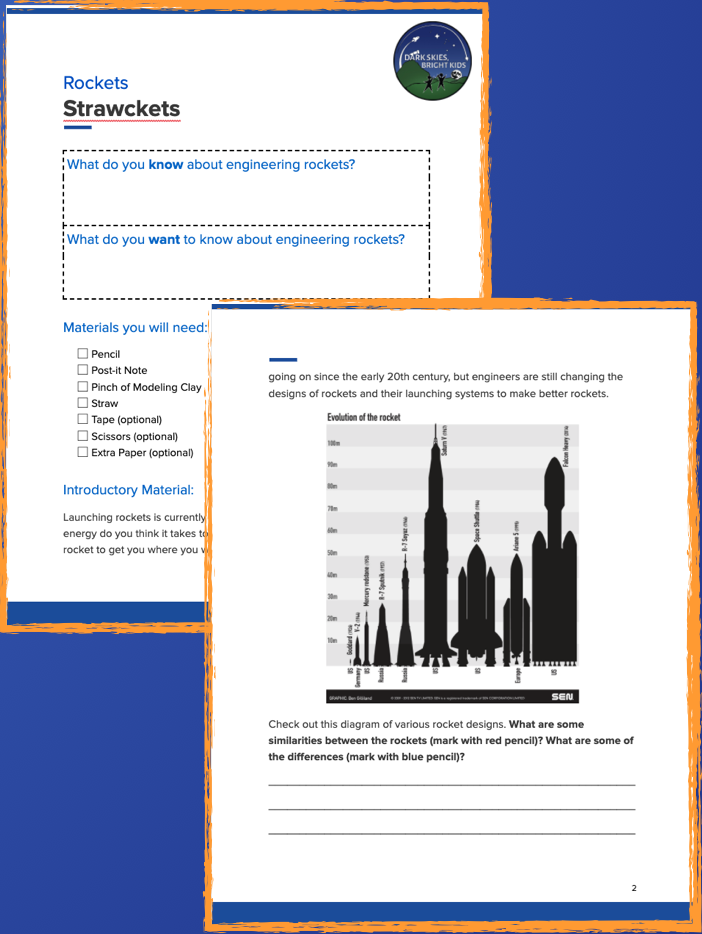
Our solution was to convert our in-person hands on activities to activity sheets that children could do complete their own at home and to mail them all the materials needed for the club. Instead of hosting an “all day” zoom session (yikes), we had morning, afternoon, and evening checkups, which we recorded and later posted for the students to access if they were unable to attend. Children and parents were able to connect by posting images to our private padlet network.
DSBK has also hosted a virtual Star Party, where included live constellation tours using Stellarium, a tour of the Solar System using Open Space, live telescope streaming on Facebook, and IR camera and elephant’s toothpaste demonstrations. Star Party will be posted on the DSBK webpage soon, so if you’re interested keep an eye out for the videos.
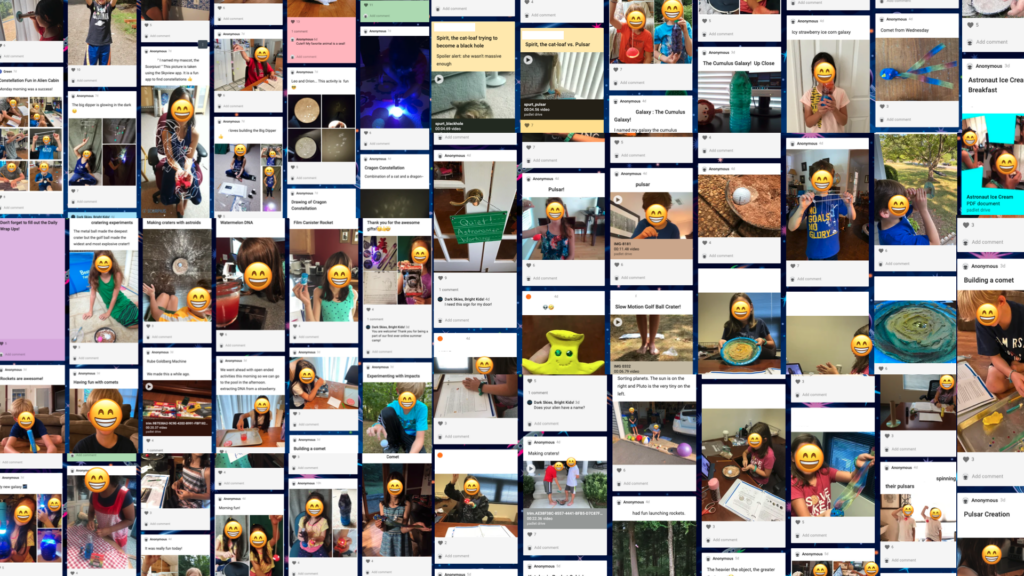
The “Perks” of Going Virtual
We can all agree learning virtually during 2020 has not been fun, but what are the perks of a virtual world? In the case of DSBK we have found that “going virtual” has allowed us to reach children beyond Virginia (where we are centered). For example, at Star Party this year, we had attendees from across the United States. Additionally, the activity write-ups and virtual planetarium shows will be available on our website for anyone to access (some are there now, but we’re still finalizing things).
While a virtual world has been isolating, Dark Skies, Bright Kids! have embraced the potential to extend our reach in the community. Even when the pandemic has ended, we have discovered a new way to reach children who otherwise may not have been exposed to “thinking like a scientist.” And maybe someday, these children will become scientists themselves.
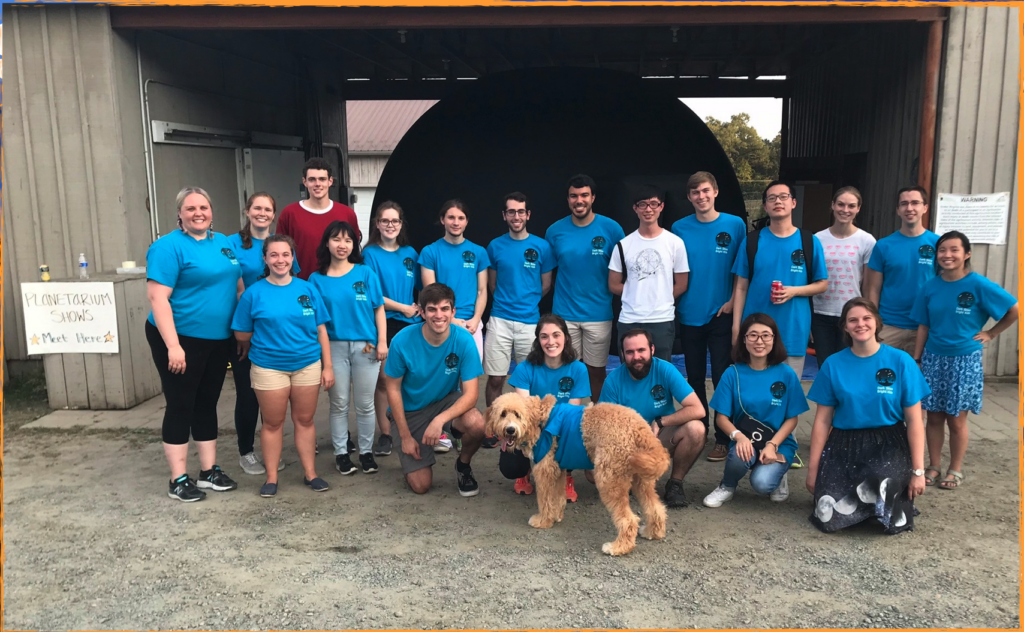
Special thanks to Jenny Calahan for editing this bite.
An additional special thanks to UVA Astronomy, NSF, Chandra Observatory, Virginia Discovery Museum, Packard Foundation, and Albermarle Ciderworks. These organizations have allowed DSBK to succeed for over 10 years.
Interested in ensuring DSBK can continue our mission? Consider donating here.

